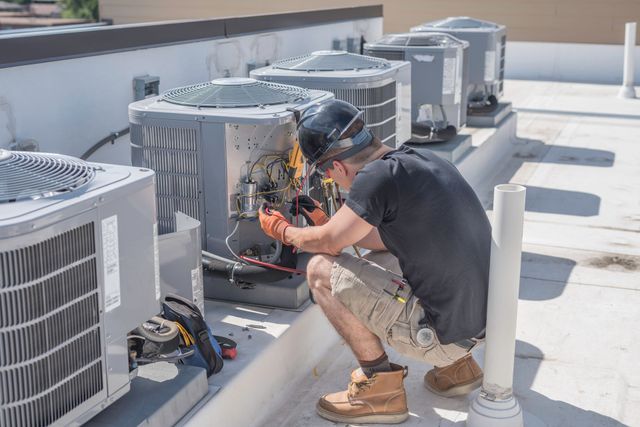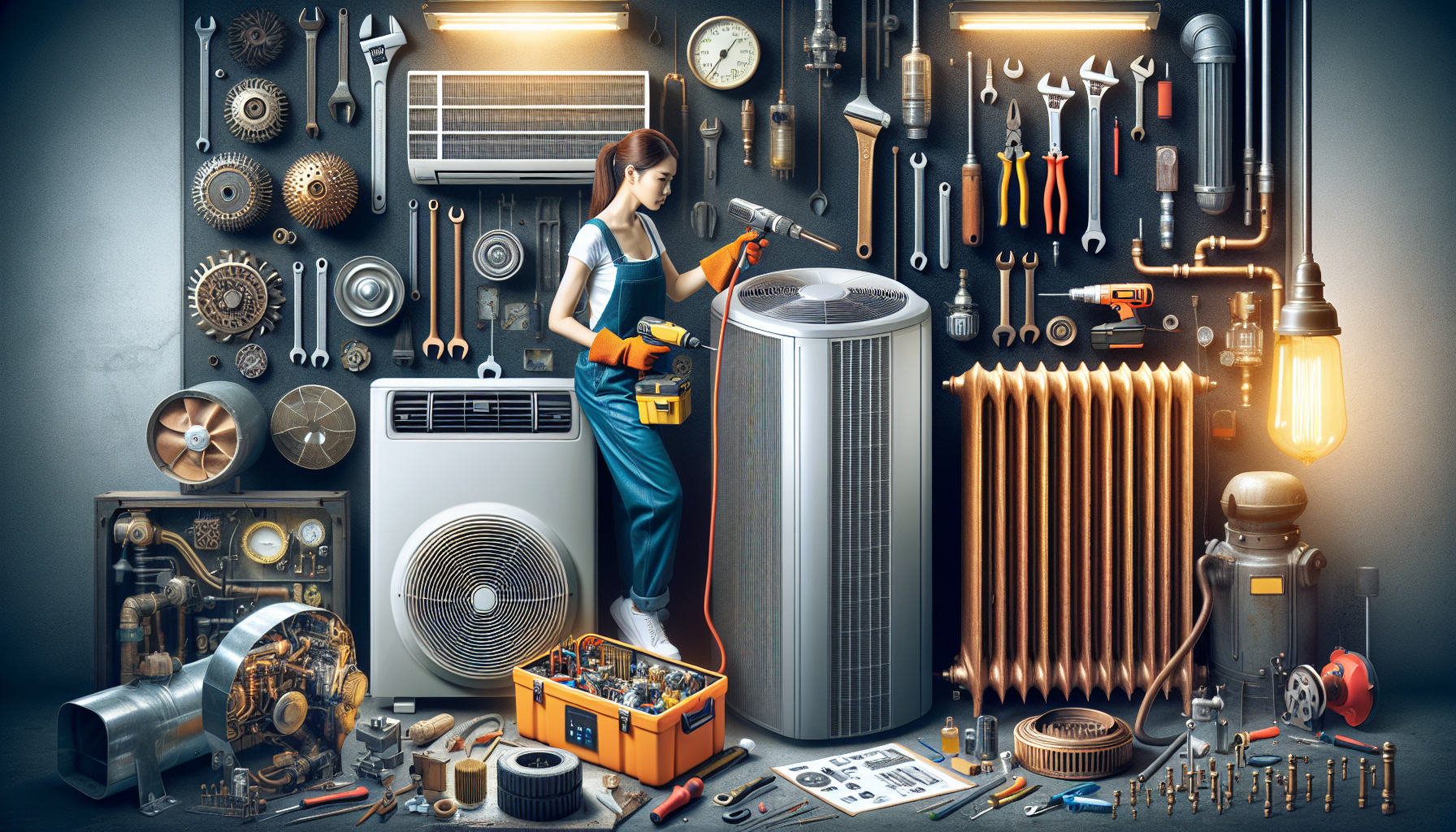Improve your indoor comfort with top-rated hvac repairs.
Improve your indoor comfort with top-rated hvac repairs.
Blog Article
The Ultimate Guide to Troubleshooting Common A/c and Air Conditioner Problems
Homeowners commonly run into various concerns, from insufficient air conditioning to difficult audios originating from their units. Acknowledging when a problem goes beyond standard remedies can be similarly vital.
Usual HVAC Problems
Identifying common heating and cooling issues is critical for keeping a comfortable interior environment. Homeowners usually experience concerns that can disrupt home heating, ventilation, and air conditioning systems. One widespread trouble is poor air flow, which may result from clogged up filters, obstructed air ducts, or malfunctioning fans. This can cause unequal temperatures and increased energy consumption.
One more regular problem is refrigerant leaks, which jeopardize the efficiency of cooling systems. Not enough refrigerant levels can trigger systems to struggle in cooling down spaces, causing greater operational expenses and possible lasting damages. Additionally, thermostat breakdowns can bring about inappropriate temperature regulation, triggering pain and excessive power use.
Finally, unusual noises or smells originating from heating and cooling systems can suggest underlying troubles. As an example, rattling sounds may suggest loosened parts, while moldy scents could indicate mold development within the air ducts. Dealing with these issues promptly is vital to protect against more damage and guarantee ideal system performance. Regular upkeep and prompt medical diagnosis of these typical heating and cooling troubles can substantially improve the reliability and performance of home heating and cooling systems, ultimately contributing to a much more comfortable living setting.

Indications of Air Conditioning Issues
Recognizing the indications of cooling issues is essential for making certain optimum efficiency and convenience in your home. Among the most instant indicators wants cooling; if your air conditioning unit is not giving the anticipated level of cooling, it might symbolize low refrigerant levels, a failing compressor, or clogged up filters. In addition, if you discover uncommon noises-- such as grinding, screeching, or rattling-- this may indicate mechanical issues that require punctual interest.
An additional critical sign is a rise in energy bills without a corresponding change in use. This inefficiency often indicates underlying problems, such as dirt build-up in the coils or ductwork leakages. If you find unpleasant odors emanating from the unit, it might be an indication of mold and mildew growth or electric issues, both of which need prompt examination.
Finally, frequent cycling on and off, understood as short-cycling, can show troubles with the thermostat or an improperly sized device. By being vigilant regarding these indications, you can deal with air conditioner concerns early, making certain a comfortable setting More Bonuses and lengthening the life of your cooling system.
Detailed Troubleshooting
When your air conditioning system begins to underperform, it's crucial to break down the fixing procedure right into convenient steps. If the setups are appropriate, evaluate the air filter; a dirty or clogged up filter can significantly hamper airflow and performance.
Following, examine the breaker or fuse box for tripped breakers or blown merges. If the breaker has actually tripped, reset it, but watch on it; if it journeys once again, there might be a deeper electrical concern.
Check the outdoor system for debris, such as fallen leaves or dust, which can obstruct airflow. Ensure the unit is clear and that the fins are not curved.
Preventive Maintenance Tips

Throughout these examinations, technicians can determine and address possible issues prior to they escalate. Furthermore, change air filters every 1-3 months to enhance air top quality and system efficiency.
Keep the exterior device free from debris, such as leaves and dust, which can prevent air flow. Cut surrounding plant life to maintain a minimum of 2 feet of clearance (hvac). Inspect and clean up the condensate drain to stop water damage and mold growth
Check insulation around ducts, ensuring it remains intact to stop energy loss. Consider a programmable thermostat to enhance power usage according to your schedule.
Lastly, check your system's performance frequently, noting any type of uncommon sounds or changes in temperature level. Aggressive procedures are important in preserving a reliable a/c system, ultimately bring about lower power bills and improved convenience.
When to Call a Professional
Recognizing when to call a professional for cooling and heating issues can save you time, money, and unnecessary tension. While some small issues may be settled via do it yourself troubleshooting, specific indications suggest that professional intervention is needed. If you experience inconsistent temperatures throughout your home, uncommon noises from your HVAC system, or relentless smells, it is vital to seek expert aid.
Furthermore, if your system falls short to begin or often cycles on and off, these may be signs of even more major underlying concerns that need specialized expertise and tools (furnace repair). Refrigerant leakages, electrical breakdowns, or issues with the compressor can make complex repair services and may present security risks
One more critical element is the age of your system. If your HVAC system is over 10 years old and shows repeated concerns, getting in touch with an expert for a detailed examination can help determine whether repair or substitute is a lot more affordable. If you do not have the comfort or experience to take care of complicated repair services, it's prudent to rely on a qualified specialist.
Ultimately, focusing on safety and efficiency is vital. When in uncertainty, err on the side of care and contact an expert to guarantee your heating and cooling system operates ideally.
Conclusion
Finally, successfully troubleshooting typical cooling and heating and air conditioner problems calls for an organized strategy to recognize problems, apply step-by-step solutions, and focus on precautionary maintenance. Identifying indicators of malfunction can stop small problems from rising right into considerable fixings. While property owners can resolve numerous issues separately, comprehending when to look for professional aid is critical for making certain the longevity and performance of home heating and cooling systems. Complying with my sources these standards fosters a more comfy and energy-efficient living atmosphere.
Report this page